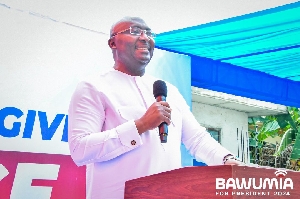Politics of Wednesday, 23 May 2012
Source: GNA
Local Government Minister unveils challenges of unemployment

Mr. Samuel Ofosu-Ampofo, Minister of Local Government and Rural Development on Wednesday said, unemployment posed an urban management challenge, particularly in sustaining the provision and management of infrastructure.
The problem also includes the provision of basic municipal and social service, and the mobilisation of resources for local development.
He said it was therefore important to encourage the private sector to participate in the performance of functions, which had been traditionally reserved for the public sector including the provision of public infrastructure and service.
Mr. Ofoso-Ampofo made the observation at the opening session of a two-day Stakeholder Workshop organised by the Social Investment Fund (SIF) in Accra, to deliberate on Public-Private-Partnership (PPP) for Employment Creation in Ghana.
The workshop, the second national intervention by SIF, was to assist key stakeholders in the southern sector of the country to understand, imbibe and appreciate the dynamics between PPP and employment creation in infrastructural provision, facility management and local service delivery especially at the Metropolitan, Municipal and District Assemblies (MMDAs).
It would increase mutual understanding of pro-poor and employment oriented PPP, discuss the enabling policy and regulatory framework in relation to PPP’s in Ghana, share a new paradigm of development PPP and facilitate the development of preliminary Action Plans for the implementation of viable employment oriented PPP project by MMDA’s.
Mr. Ofosu-Ampofo said PPP was a partnership between public and private sector to assist, plan, finance, construct, or operate projects traditionally provided by government.
He said it was a contractual arrangement between a public entity and a private sector with clear agreement on shared objectives intended to provide public infrastructure and public service.
He said with PPP, local government shifts its focus from being a supplier to a buyer of services, saying by maximising private sector expertise in project management, local government could focus its resources on policy making and protecting the public interest.
“Government has over the years financed MMDA infrastructural facilities and service delivery through direct budget, however since the demand for these facilities and services outstripped supply, and access to resources have become overstretched, government increasingly rely on the private sector to provide financial resources, innovation and technical expertise to support infrastructure provision and service delivery”.
He said government's move to initiate the PPP was to demonstrate its readiness to tap into the wealth of experience, knowledge and capital accumulated by the private sector in accelerating the county’s infrastructural development.
Mr. Ofosu-Ampofo noted that as in most African countries, Ghana was facing monumental challenges in infrastructural development and public service delivery, with the tendency to constrain the growth of the economy.
“This needs to be reserved with the support of the private sector. Ghana’s medium-term annual infrastructure gap was estimated to be about $1.5 billion, according to the PPP policy document.
“The government alone cannot muster the finance and expertise to meet this need and the involvement of the private sector was not just desired, but necessary. Financing this gap would therefore require generating funds from a range of resources including the PPP’s arrangement,” he added.
The SIF is a special fund set aside to provide direct targeted and sustainable assistance to Ghana’s urban and rural impoverished communities. It supports sub-projects designed and implemented by community based organisations.
The fund seeks to contribute effectively and rapidly to reducing rural and urban poverty in Ghana, facilitate access to basic economic and social infrastructure and service.
It enhances access of the poor to financial services by increasing the availability of micro-finance and the capacity of indigenous financial institutions, and strengthens the capacity of community based organisations, NGOs, local micro-finance institutions and local government administrators in support of the overall goal of poverty reduction.**










